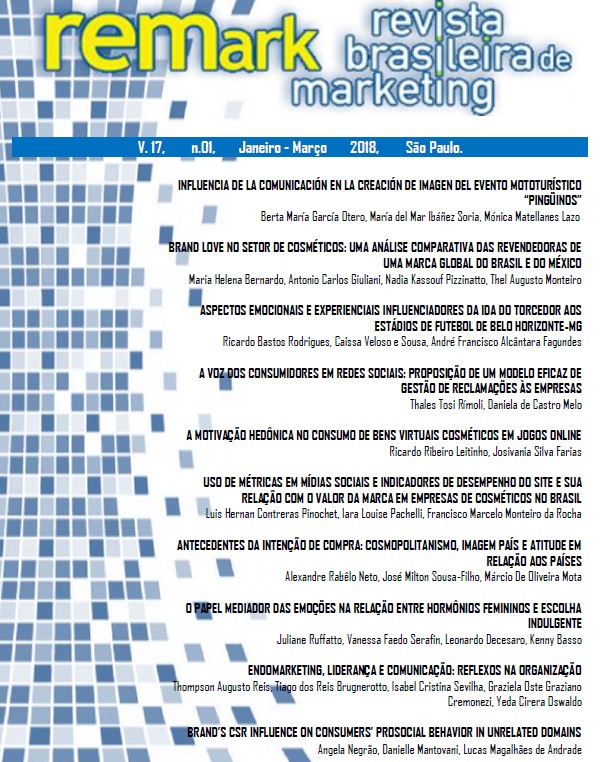Brand’s CSR Influence on Consumers’ Prosocial Behavior in Unrelated Domains
DOI:
https://doi.org/10.5585/remark.v17i1.3707Palavras-chave:
Consumers’ Prosocial Behavior, CSR Activity, Consumer-Brand Social Distance.Resumo
This study proposes that Corporate Social Responsibility (CSR) activity may positively influence consumers’ prosocial behavior. However, this effect is moderated by the consumer-brand social distance. In two experiments, we show that consumers close to the brand become more prosocial in situations unrelated to the cause supported by the company when they are exposed to the brand’s prosocial communication, compared to those who are distant from the brand. This paper contributes to furthering CSR theory by showing the positive effects of brand CSR initiatives on secondary social outcomes, such as consumers’ volunteering and donating money to a social cause not closely related to the one promoted by the company. Besides, this paper also contributes theoretically by showing the moderation role played by consumer-brand social distance. Important implications for the role of CSR are useful for companies and society in general, since the paper demonstrates that brand’s prosocial behavior can influence consumers’ prosocial behavior beyond the brand context only.
Downloads
Downloads
Publicado
Como Citar
Edição
Seção
10.1108/REGE-02-2023-0017
10.1108/APJML-02-2022-0165
- Resumo 517
- PDF/INGLÊS 272









